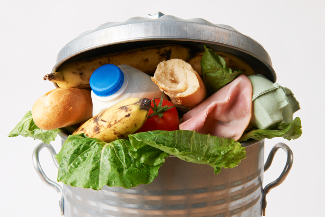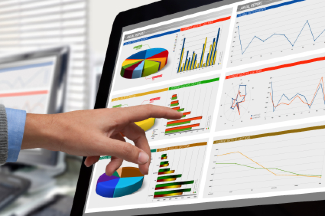Member State Page : Spain
Last updated on the 29/09/2023

Per capita: 90 kg in 2020
In total: 4 259 232 tonnes in 2020

Retail and other distribution of food: 348 219 tonnes in 2020
Restaurants and food services: 211 410 tonnes in 2020
Households: 1 434 726 tonnes in 2020

Household and retail level: 50% reduction
Production and other stages of the food supply chain: 20% reduction
Contact point
Target
The national circular economy strategy Circular Spain 2030 aims to reduce the generation of food waste throughout the food chain by 2030, as follows: 50% reduction at household and retail level and 20% in the production and other stages of the food supply chain.
Measure
The Household Food Waste Panel provides information about the amount of food wasted in Spanish households and consumer behaviour at home. This covers data on meal leftovers and food thrown away without preparation.
In compliance with the provisions of Directive 2008/98/EC, the baseline for the measurement of food waste is 2020, the first year in which Member States must report to the European Commission in accordance with the common EU methodology to measure food waste.
Act
The national waste prevention programme (2014-2020), drawn up by the Ministry of the Ecological Transition and the Demographic Challenge, already included food waste as one of its priority areas. This programme is currently being revised to draw up a new programme for the period 2021-2026, which will also include the relevant new food waste estimates. Food waste remains a priority area in the draft currently under development, and the specific measures to be included are being determined.
Competent authorities at national and regional level will also have to include measures to reduce food waste in their waste prevention programmes, complementing the provisions established in the national prevention programme.
The Law 7/2022, of 8th April, waste and contaminated soil for a circular economy includes a specific article (article 19) with concrete measures for reducing food waste, among which:- food business operators must prioritise, in the following order, the donation of food and other redistribution of food for human consumption, or the processing unsold products that are still fit for consumption; the feeding of animals and the manufacture of animal feed; their use as by-products in other industries; and as a last resort, as waste, for the production of compost and digestate for the use in land with the aim of benefiting soil;
- in the corresponding regulations on the financing of waste collection services, local authorities will be able to establish reduced local charges for food business operators that set up, in collaboration with non-profit and charity organisations, management systems that reduce food waste in a significant and quantifiable manner.
The national circular economy strategy Circular Spain 2030 includes the objective to reduce food waste in order to decrease the associated economic and environmental impacts and to favour a more equitable distribution of food resources. The strategy includes measures related to food redistribution, as well as measures to valorise food resources and to create new market opportunities.
The Ministry of Agriculture, Fisheries and Food has been working on a national law on food loss and waste as regulatory framework for food waste reduction actions. In the legislative development process, public consultation took place in 2021 and the Proposal of Law was approved by the Government to be processed by the Parliament on 2022. : https://www.mapa.gob.es/es/prensa/anteproyectoleydesperdicio_tcm30-620834.pdf
The Law was scheduled to be approved on June 15, 2023. Two weeks before, general elections were called and the activity of the Parliament finished in that Legislature. Therefore, the Law could not be approved in that legislature.
https://www.congreso.es/proyectos-de-ley?p_p_id=iniciativas&p_p_lifecycle=0&p_p_state=normal&p_p_mode=view&_iniciativas_mode=mostrarDetalle&_iniciativas_legislatura=XIV&_iniciativas_id=121%2F000107.
In Spain, 35% of the net book value of donated food can be claimed as a corporate tax credit. This percentage can be deducted from the corporate tax on their revenue.
In addition, there is a recently published national regulation governing the donation of food by retail establishments, specifically, through the aforementioned national regulation, some flexibility is provided to retail establishments to facilitate donations.
Information for consumers to help them avoid misunderstandings regarding the meaning of date marking, particularly of ‘best before’ dates, and other materials focused on reduce food waste while ensuring food safety, are available on the website of the Spanish Food Safety and Nutrition Agency. Several consumer awareness-raising actions have been developed. Relevant materials, including food waste studies, news, advice and recipes, as well as documents and links to specific information can be found on the website of the Ministry of Agriculture, Fisheries and Food.
https://www.mapa.gob.es/es/alimentacion/temas/desperdicio/default.aspx
A number of talks and workshops on food waste have been organised to increase citizens’ awareness. Information on food waste and relevant materials to raise awareness on the issue can also be found on dedicated websites developed at regional level (e.g. Zerodespilfarro in the Basque Country.
Educational material such as guidelines, infographics, leaflets and brochures have been produced and published on the website of the Ministry of Agriculture, Fisheries and Food https://www.mapa.gob.es/es/alimentacion/temas/desperdicio/default.aspx From the Ministry of Consumer Affairs several communication campaigns have been published regarding food information which are directly or indirectly related with food waste and good food habits.
Find these communication campaigns in this link: Campañas de Comunicación de Alimentos | Ministerio de Consumo.
Moreover, in the following link there is a video created for the “day against food waste” with five easy ideas to reduce food waste and protect the planet: consumo.gob.es/sites/consumo.gob.es/files/mconsumo_desperdicioalimentario_v_1_2.mp4
Relevant resources
Links
